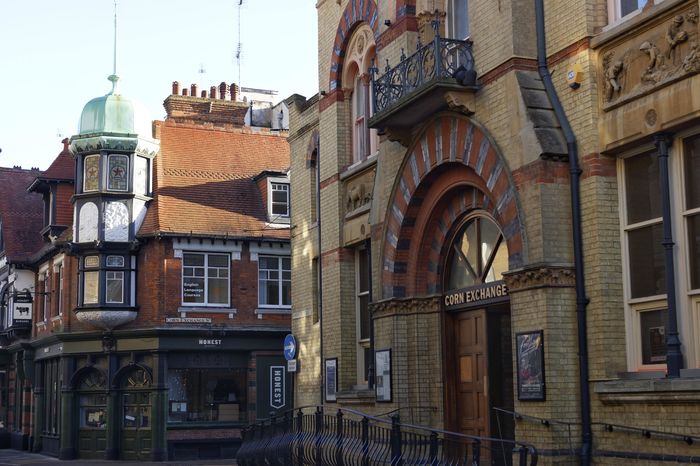Cambridge Connect seeks government funding for light railway project
The proposed network would ease travel to campuses outside the city centre

A Cambridge company is asking the government to invest £5 million in its proposed light rail network for the city.
The proposed network would facilitate student travel from the city centre to departments further afield, such as the West Campus and the biomedical campus
Cambridge Connect has approached Angela Rayner, Deputy Prime Minister and Secretary of State for Levelling Up, Housing and Communities, asking that the scheme be included in the autumn budget and spending review.
The company says that the £5 million would be used for feasibility studies into the proposed light railway routes.
A spokesperson for the Ministry of Housing, Communities and Local Government acknowledged receipt of the letter, and said it would receive a response in due course.
The network would offer two lines: the ‘Isaac Newton Line’ and the ‘Darwin Line’, which would connect the city centre to surrounding areas, including via a tunnel through Cambridge City.
The Isaac Newton Line would be split into three phases, with Phase One being the company’s first priority. This would stretch from Eddington to Addenbrookes/Trumpington, linking “key residential, commercial, educational, health, and employment centres in Cambridge and the nearby area.”
Phase One has a proposed delivery date of 2030, with Cambridge Connect recommending “an immediate start” to the conversion of the southern busway into light rail.
The Darwin Line would be introduced at Phase Two, going via the Science Park to extend from Cambridge North rail station to the West Campus.
Phases One and Two would cover 40km of track in and around Cambridge, linking “all of the major employment and residential areas”. Cambridge Connect describes this as “ambitious,” but “far more realistic than the proposed ‘metro’ of ~150km that was proposed in the Cambridge Autonomous Metro (CAM).”
The light rail network would seek to “closely integrate” with services on the heavy rail network by constructing new rail stations on pre-existing heavy rail lines. This is in addition to the new station being opened in Cambridge South in 2025.
The company describes light rail as “an excellent long-term solution to deliver reliable, frequent, fast and sustainable transport for Cambridge and its surrounding region.” It claims that light rail is “a technologically advanced and well-proven way to deliver a transformative ‘metro’ for Cambridge.”
The scheme would reportedly benefit residents, business, the universities, schools, healthcare, and visitors to the city, in addition to preserving “important environmental and heritage values.”
Cambridge Connect Director Colin Harris said: “No strategy for the future of Cambridge can work without a radical modal shift away from the motor car.”
He claimed: “Light rail can provide a core backbone of fast, reliable, clean and adaptable public transport that when integrated with other modes such as trains, buses, coaches and active travel will serve the whole community well while unlocking our full potential as a key centre for European science and technology.”
“Cambridge Connect is urging the Government to invest in these crucial studies to pave the way for a future-proof transport solution that meets the needs of a growing city and region,” Harris continued.
Harris’ company says that the core of the light rail network could be constructed within six years, and that the capital cost would be between £700 and £800 million. Thereafter, it is predicted that the network would cost £35 million annually to operate.
Cambridge Connect anticipates that 13 million journeys would be undertaken on the network annually, and that the network would cover its operational costs.
 News / Candidates clash over Chancellorship25 April 2025
News / Candidates clash over Chancellorship25 April 2025 News / Cambridge professor paid over $1 million for FBI intel since 199125 April 2025
News / Cambridge professor paid over $1 million for FBI intel since 199125 April 2025 Interviews / Dr Ally Louks on going viral for all the wrong reasons25 April 2025
Interviews / Dr Ally Louks on going viral for all the wrong reasons25 April 2025 Comment / Cambridge students are too opinionated 21 April 2025
Comment / Cambridge students are too opinionated 21 April 2025 Music / The pipes are calling: the life of a Cambridge Organ Scholar25 April 2025
Music / The pipes are calling: the life of a Cambridge Organ Scholar25 April 2025






